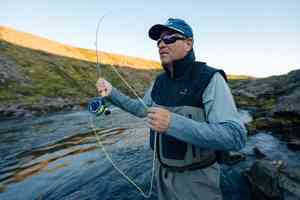While most of the country is consumed with all things coronavirus, environmental groups, watchdog organizations and other environmental advocates have issued repeated warnings about the Trump administration’s continued efforts to roll back environmental regulations under cover of the viral pandemic.
One need not look hard to understand the reasons for these warnings. Since the second half of March, when the pandemic largely took hold across the United States, the Trump administration has announced that the EPA will stop enforcing a sweeping range of regulations intended to protect environmental and public health, has advanced its plans to rollback methane regulations on oil and gas wells, has continued its efforts to completely overhaul the National Environmental Policy Act, dealt a heavy blow to efforts to curb greenhouse gas emissions by rolling back fuel efficiency standards for cars and trucks, and has pushed forward its repeal of the landmark Clean Power Plan and Clean Water Rule—which would weaken or strip Clean Water Act protections from 60% of the waterways in the nation.
Trump’s attempt to do away with the Clean Power Plan, perhaps the signature environmental achievement of the Obama administration, is currently in court, facing litigation filed by public health and environmental organizations and 22 different states. Last week, iconic outdoor brands Patagonia and Columbia Sportswear filed a brief supporting that lawsuit, and also called on Congress and the courts to stop Trump’s neutering of the Clean Water Act.
The Trump administration’s scrapping of the Clean Power Plan, a ruleset that would have resulted in sharp cutbacks in U.S. greenhouse gas emissions, aims to replace it with the Affordable Clean Energy (ACE) Rule. ACE has widely been described as a gift to fossil fuel companies and the Trump administration’s own analysis indicated it would lead to as many as 1,400 premature deaths every year and 15,000 additional cases of upper respiratory ailments by 2030.
In the brief, Patagonia and Columbia outline myriad reasons why the courts should block Trump’s efforts to replace the Clean Power Plan with the ACE. The brief focuses intently on the ongoing climate crisis, noting that “climate change is already happening and will continue without immediate action,” and highlights the dramatic impacts that climate change has on public health, how it threatens natural resources, impedes the ability of individuals to enjoy the outdoors, and disproportionately effects rural and tribal communities.
In an op-ed, Ted Manning, who run’s Patagonia’s fishing business, said “As America works to recover from the pandemic, it is critical that we don’t trade one disaster for another. That’s what will happen if the Trump administration continues to sabotage bedrock environmental rules that protect the health of the American people and the strength of our economy.”
In his op-ed, Manning added that “The Clean Water Act was passed with bipartisan support in 1972 because Americans were fed up with burning rivers, polluted waters and dangerous drinking water. It has been one of the most successful environmental laws in history. The 2015 Clean Power Plan put U.S. power plant emissions on track to be 32 percent lower in 2030 than they were in 2005 — a major step toward confronting the climate crisis. Together, they are at the heart of America’s fight for a cleaner, healthier future. Now Trump is attempting to trash that future.”
Also detailed in the brief are the impacts that scrapping the Clean Power Plan would have on the outdoor recreation economy—a topic of immediate and pressing concern given the devastation the coronavirus pandemic has wreaked on the U.S. economy. According to the brief, ACE poses a “serious threat” to the U.S. outdoor recreation economy—a $900 billion dollar economic engine that supports 7.6 million jobs nationwide; jobs that Manning points out can’t be outsourced, offshored or automated.
Speaking about why it is particularly important to maintain focus on core environmental issues during the coronavirus pandemic, Manning told Hatch Magazine, “It is because the nation is focused on that which threatens all of us, that we must double down on the work necessary to save this planet. We can see in the pandemic our ability to create change at macro levels. And there isn’t a threat more existential than the climate crisis. We know we can make a difference together, and we have the power to choose. The world we step into next is ours to forge. As we face a global pandemic, we have come together to collectively overcome it. As we look beyond COVID, returning to our former lifestyles of waste and convenience is a choice—one that we know leads us nowhere. Let’s make the other choice, and choose to work together to save our planet.”

































Comments